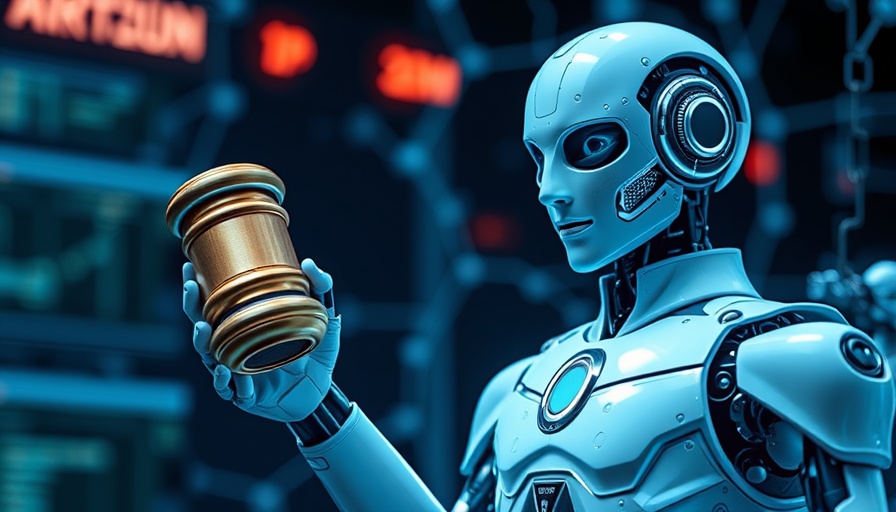
A Historic Ruling in AI Copyrights
Mark Zuckerberg's Meta has emerged victorious in a landmark copyright case, a decision that packs significant implications not just for the tech giant, but for the future of artificial intelligence (AI) in creative realms. The ruling by U.S. District Judge Vince Chhabria sided with Meta after a group of well-known authors, including Sarah Silverman and Ta-Nehisi Coates, accused the company of unauthorized use of their works to develop its AI models. This decision comes on the heels of another ruling favoring Anthropic, demonstrating a growing legal landscape where AI companies are continually challenging existing copyright laws.
Understanding Copyright in the Age of AI
The crux of the lawsuit highlights a pressing issue in AI development: the doctrine of fair use. Traditionally, fair use allows the limited use of copyrighted materials without permission from the owner. Meta's spokesperson praised this doctrine as crucial for advancing technologies, particularly in an era where AI relies heavily on vast data datasets for training. But the rulings also hint that the balance between innovation and protecting creators' rights is precarious, with courts acknowledging the potential impacts of unchecked AI growth on the creative industries.
Implications for Authors and Creatives
For authors and artistic creators, this ruling is a double-edged sword. While Chhabria's judgment offers some hope, stating that using copyrighted work without permission could be unlawful in many scenarios, it also puts the onus on creators to better present their case against tech companies like Meta. Critics of the decision argue that it sets a concerning precedent for how AI technologies may exploit creative works, emphasizing the need for clearer legal frameworks as AI continues to evolve.
Looking Ahead: AI and Its Legal Landscape
The path forward for both AI companies and content creators may soon become more complicated. With more cases likely to arise as AI technologies advance, future lawsuits may bridge gaps between innovation and copyright protection. The evolution of AI necessitates a thoughtful dialogue around what constitutes fair use of creative works, as well as how AI can be integrated into society without undermining the original creators. These discussions are vital as we venture deeper into a world increasingly shaped by intelligent technologies.
The ruling on the Meta lawsuit is a sounding alarm for creative professionals everywhere. It highlights the need for vigilance in protecting intellectual property in an age where AI is becoming a cornerstone of daily life. As we navigate this evolving landscape, it becomes crucial to engage in conversations about how AI will transform creative fields while also respecting the rights of those who poured their skills and passions into creating the very works that fuel these systems.
Explore more about the intersections between technology and society, and empower yourself with knowledge on how creative rights are being shaped in this new era.
 Add Row
Add Row  Add
Add 




 Add Row
Add Row  Add
Add 



Write A Comment